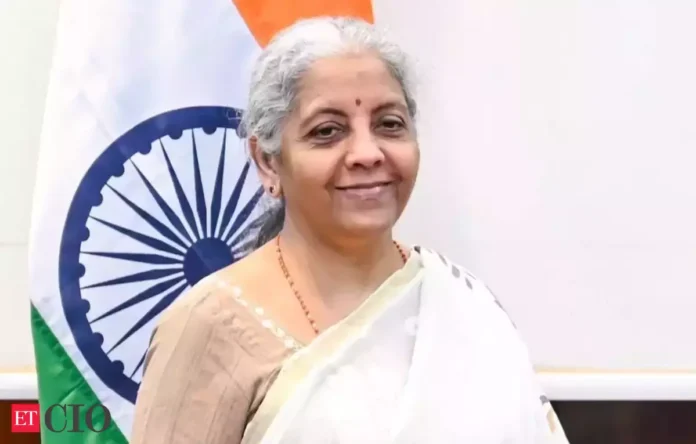Union Finance Minister Nirmala Sitharaman highlighted a pressing financial requirement of nearly $4 trillion to expedite advancement on the Sustainable Development Goals (SDGs) during her address at the 3rd Voice of Global South Summit on Saturday. She emphasized that this significant funding gap, as outlined in a recent report by the United Nations Conference on Trade and Development (UNCTAD), poses a substantial barrier for developing nations striving to meet their sustainable development targets. The minister called upon global leaders and stakeholders to prioritize financial strategies that can effectively bridge this gap.
Sitharaman’s remarks come at a critical juncture when many developing countries are grappling with economic challenges exacerbated by the recent pandemic and rising geopolitical tensions. The UNCTAD report underscores that without immediate action, these nations may struggle to implement essential initiatives aimed at poverty alleviation, climate change mitigation, and infrastructure development—key components of the SDGs set for achievement by 2030. The finance minister urged collaboration among governments, private sectors, and international organizations to mobilize resources efficiently in order to foster sustainable growth.
In her speech, Sitharaman advocated for innovative financing mechanisms that could complement traditional aid methods. By leveraging technology and promoting public-private partnerships, she believes that it is possible to unlock additional funding channels necessary for meeting the ambitious goals laid out in the SDGs framework. As global discussions around sustainability intensify, her call for urgent action resonates with many who recognize that achieving these goals requires not just commitment but also substantial investment from all corners of the world.
In a recent statement, the Finance Minister underscored the pressing issue of high debt levels facing developing economies, particularly low-income nations, which have severely restricted their ability to invest in essential developmental initiatives. This financial strain has led to stagnation—or even regression—in the implementation of several Sustainable Development Goals (SDGs), as global uncertainty continues to disproportionately affect countries in the Global South. The Finance Minister’s remarks come amid rising concerns about economic stability and growth in these regions.
The United Nations Conference on Trade and Development (UNCTAD) has highlighted that providing debt relief for developing countries is critical for creating necessary fiscal space within their economies. By alleviating some of this financial burden, nations would be better positioned to prioritize investments in infrastructure, healthcare, education, and other vital sectors crucial for sustainable development. As many low-income countries grapple with mounting debt crises exacerbated by external economic shocks and internal challenges, experts argue that targeted interventions could help reverse negative trends and foster resilient recovery pathways.
While discussions surrounding international financial support gain momentum, the urgency of addressing these debt-related issues cannot be overstated. Stakeholders from various sectors are calling for collaborative efforts among governments and international organizations to devise effective strategies aimed at ensuring that developing economies can thrive rather than merely survive amidst ongoing global uncertainties.
In a recent address, Finance Minister Nirmala Sitharaman underscored the necessity for Multilateral Development Banks (MDBs) to respond rapidly to financing requests, highlighting that agility and speed are crucial in meeting the growing demands of global development initiatives. She pointed out that reforms at both operational levels and the identification of new additional revenue sources are essential steps toward achieving this goal. Sitharaman’s comments come amid increasing calls for MDBs to bolster their financial mechanisms in light of pressing global challenges such as climate change and poverty alleviation.
During her remarks, Sitharaman emphasized the importance of MDBs collaborating with credit rating agencies to facilitate a better flow of private capital into development projects. This strategic engagement is seen as a vital move towards enhancing the financial capacity of these institutions, thus enabling them to tackle larger-scale projects more effectively. Furthermore, she reiterated India’s commitment during its G20 presidency to revamp MDBs, aligning their operations with contemporary needs and ensuring they can mobilize resources efficiently.
Sitharaman’s proposals reflect a broader consensus among world leaders on the need for systemic changes within MDBs to maximize their impact on global development issues. As nations grapple with various socio-economic challenges, including rising inflation and environmental sustainability concerns, her push for reform could pave the way for innovative financing solutions that leverage both public and private sector investments.
Read More – Adani Group Scandal: SEBI Strives to Rebuild Trust Amidst Hindenburg Report Controversy
In a recent statement, Finance Minister Nirmala Sitharaman underscored the critical need for sustainable financing as international pressure mounts on Multilateral Development Banks (MDBs), such as the World Bank and the International Monetary Fund (IMF), to provide debt relief and support for developing economies. During her address, she emphasized that these institutions play a pivotal role in facilitating investments that can drive economic recovery while ensuring adherence to Sustainable Development Goals (SDGs). This call comes at a time when UN Secretary-General António Guterres has warned of an escalating crisis facing developing nations, where billions of people are grappling with dire economic conditions.
On June 4, Guterres reiterated the urgency of focusing on SDGs amidst increasing global challenges. He highlighted that developing countries are experiencing unprecedented hardships due to factors such as inflation, high energy prices, and supply chain disruptions exacerbated by ongoing conflicts and climate change impacts. Sitharaman’s remarks resonate with this sentiment, calling for a surge in action from both MDBs and policymakers worldwide to redirect financial flows towards sustainable projects that not only alleviate immediate economic pressures but also promote long-term resilience. Without swift intervention and innovative financing solutions, experts warn that achieving SDGs may slip further out of reach for these vulnerable economies.
In a bid to tackle pressing global challenges such as poverty and hunger, the United Nations adopted the 17 Sustainable Development Goals (SDGs) in 2015, setting an ambitious target for member countries to achieve these objectives by 2030. India’s Finance Minister emphasized that economic growth is crucial for attaining these goals, asserting that it serves as a powerful antidote to many social and economic issues. According to her, sustained economic development not only enhances financial opportunities but also creates a positive feedback loop where improvements in one area can significantly bolster progress in others.
The Finance Minister’s remarks come amid ongoing discussions about the interplay between sustainable development and economic growth. She highlighted that while addressing immediate concerns like food security and poverty alleviation is essential, fostering robust economies should remain a central focus of policymakers. The SDGs are designed not just as abstract ideals but as actionable targets that require concerted efforts across sectors—including education, healthcare, and environmental sustainability—to create lasting change. By intertwining growth strategies with the objectives of the SDGs, governments can ensure that both current needs and future aspirations are met effectively.
As nations approach the halfway mark on their timeline towards achieving the SDGs by 2030, experts stress that aligning economic policies with these goals will be vital for success. An emphasis on growth could lead to innovative solutions capable of tackling interconnected problems—enabling societies to advance toward not only financial stability but also enhanced quality of life for all citizens. The urgency surrounding this mission underscores how integral it is for governments worldwide to adopt holistic approaches that prioritize both sustainable practices and dynamic economies.

